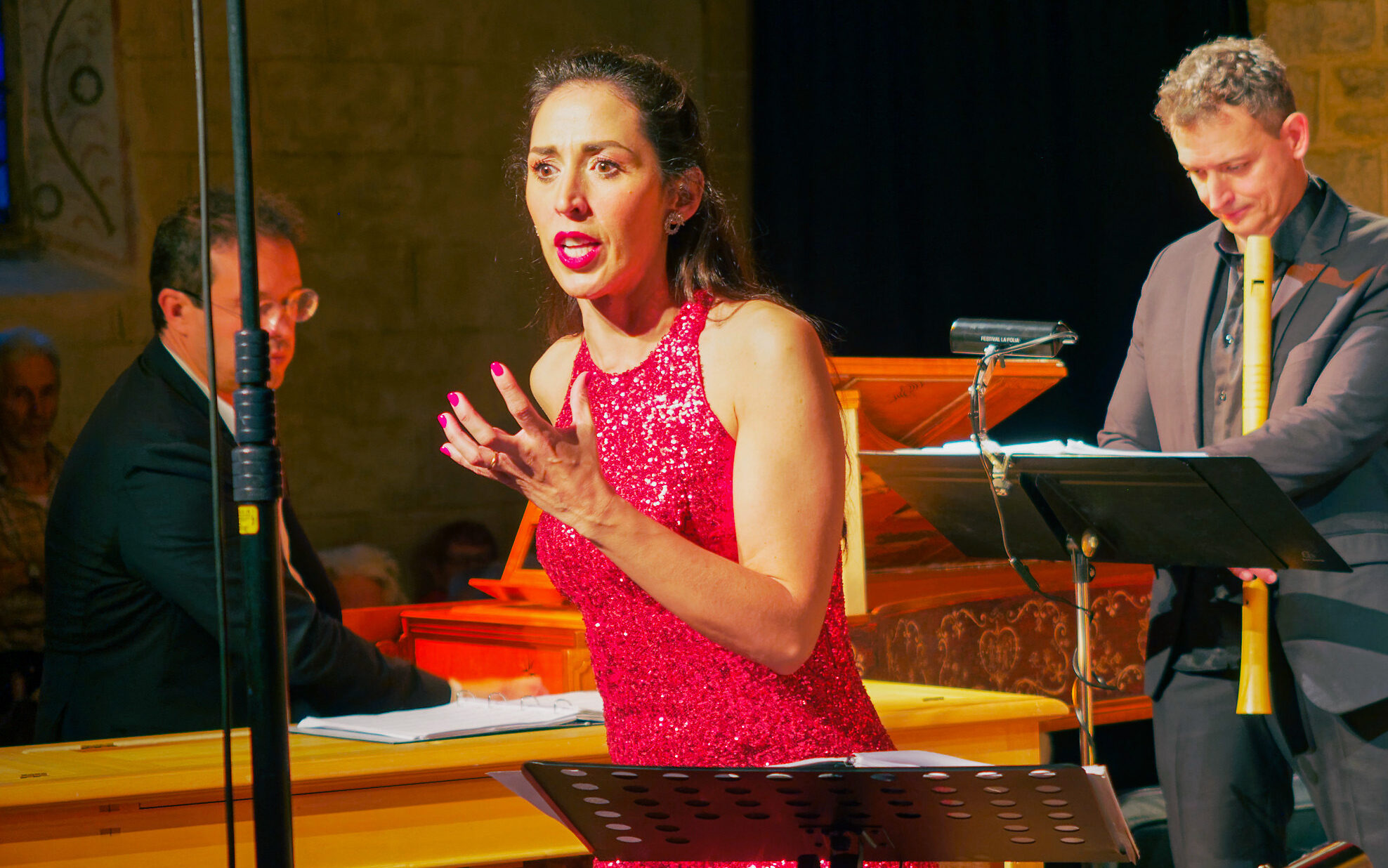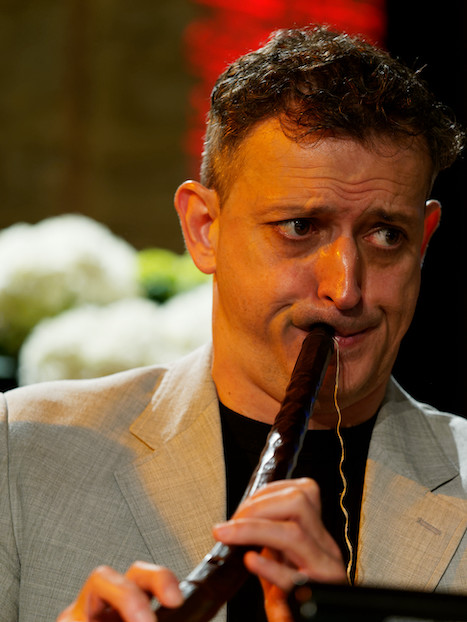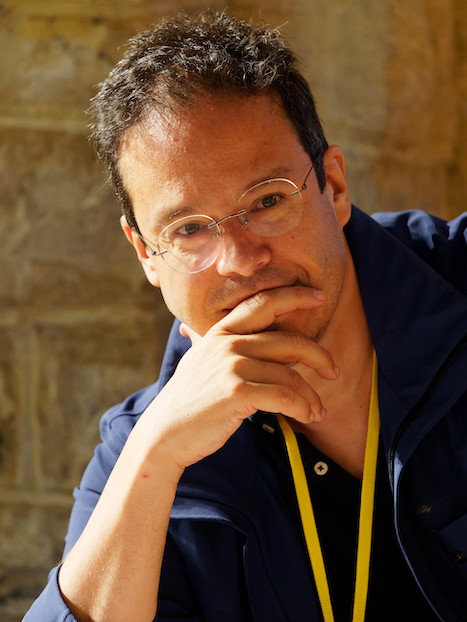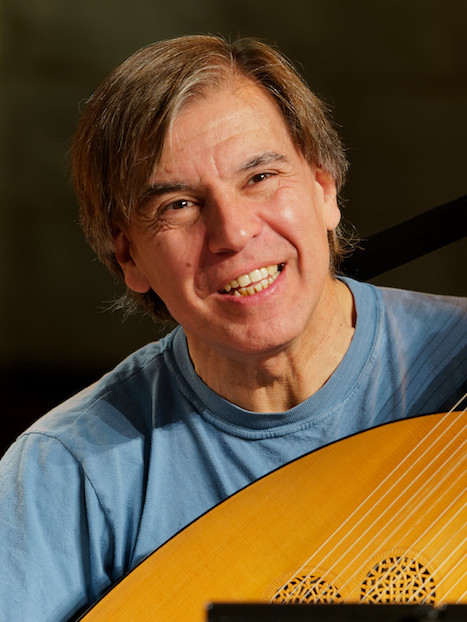


“When I looked through the manuscripts, Barbara Strozzi repeatedly surfaced in my imagination. She was Cavalli’s composition and singing pupil. Year after year, she attended all her instructor’s melodramas set to music in the various theatres of Venice. What grew out of my imagination was a recital, a hypothetical tribute to Cavalli upon his death in 1676 from various members of the Venetian academies.”
Leonardo García-Alarcón
At the end of the Renaissance, talented female poets and musicians were flourishing in the Italian palazzi, first in Florence, then Venice, but concerts often took place in salons rather than theatres, a moral and political sphere that did little to encourage the emancipation of women. Nevertheless, the two composers featured in this programme, Barbara Strozzi and Antonia Bembo, distinguished themselves with their musical accomplishments and resilience in the face of hardship. Both studied under Francesco Cavalli, the founder of Venetian opera. Strozzi’s madrigals are among the very finest in their genre, thanks to the extraordinarily expressive power of their texts and harmonies. As for Bembo, she dazzles us with her Italian virtuosity and draws our admiration with her French elegance. Her achievement is all the more remarkable when we know more about her personal history. In a show of courage and tenacity, she fled her abusive husband and lived out the rest of her days in Paris, where her talent was recognised by Louis XIV.
Francesco Cavalli — « Mira questi due lumi » (from Le nozze di Teti e di Peleo)
Antonia Bembo — « M’ingannasti in verità » (from Produzioni armoniche consacrate a Luigi XIV)
Francesco Cavalli — « Dimmi, Amor, che farò » (from L’Oristeo)
Biagio Marini — La Romanesca
Barbara Strozzi — Lagrime mie
Francesco Cavalli — « Sinfonia della Notte » (from L’Egisto)
Barbara Strozzi — Che si può fare
Tarquinio Merula — Aria sopra la cieccona
Barbara Strozzi — L’amante segreto
Barbara Strozzi — È pazzo il mio core
Dario Castello — « Sonata seconda a soprano solo » (from Sonate concertate in stil moderno, libro secondo)
Francesco Cavalli — « E vuol dunque Ciprigna » (from Ercole Amante)
Performance running time: approx. 1 hour and 10 minutes
Mariana Flores, soprano
Rodrigo Calveyra, recorder and cornetto
Marina Bonetti, harpa
Teodoro Baù, viola da gamba
Marc Wolff, archlute
Quito Gato, theorbo, guitar
Leonardo García-Alarcón, harpsichord, organ and musical direction
Reliving the concert at Inter
“Le Donne di Cavalli refers to two Venetian composers of the 17th century: Antonia Bembo and Barbara Strozzi Both were taught by Francesco Cavalli. The six instrumentalists and vocalist Mariana Flores never ceased to delight the audience. The tireless harmonic invention was proliferated by Marini, Bertoli and Cavalli, who in turn played the flutes, harp, gamba, archlute, theorbo, organ, and muselar… “
Paul Flückiger for Le Quotidien Jurassien
Who would have imagined a few years ago that there could be an evening devoted exclusively to excerpts from works by Cavalli? Monteverdi – becomes, in this case, an event in itself, but also the realization of a dream for his admirers, all the more so as the pleasure of rediscovering beloved or even more familiar pages (Il Giasone, L’Ercole amante, La Calisto, Il Rapimento d’Elena) is obviously mingled with that of discovery. This compilation, which is arranged in chronological order and was masterfully assembled by Leonardo Garcia Alarcón, confirms how expressively flexible Cavalli’s language is.
Bernard Schreuders for ForumOpera
See full article


